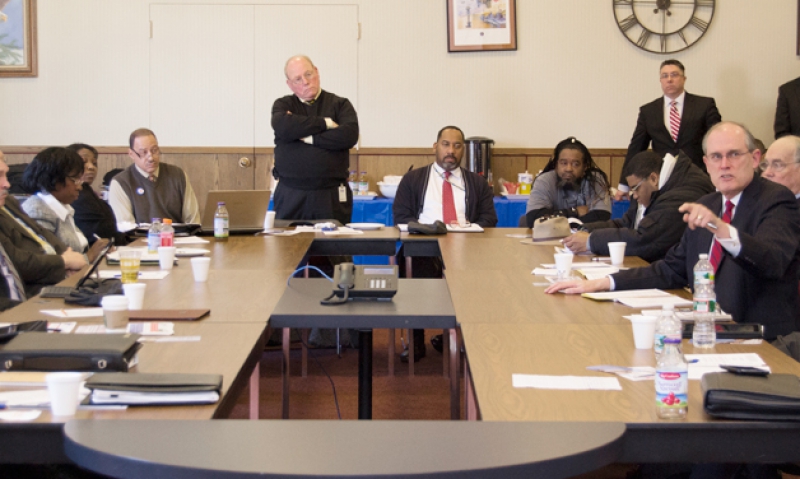
VOSBs need process that ‘makes more sense’
Continuing challenges posed by the process by which the legitimacy of veteran-owned small businesses is confirmed was the major focus of a recent meeting at The American Legion’s Washington, D.C., office. Members of the non-profit Veterans Entrepreneur Task Force (VET-Force) and the Legion’s own longstanding Small Business Task Force gathered on Feb. 12 to discuss matters of mutual concern. Most prominent among the topics discussed was the veteran-owned small business verification process administered by the Department of Veterans Affairs.
Under provisions of a federal law passed in 2010, any veteran-owned small business (VOSB) or service-disabled veteran-owned small business (SDVOSB) must undergo a rigorous screening before being listed as eligible to do business with the federal government. The already stringent process became even more involved in late 2011, with additional VA-mandated paperwork to be filed and additional steps to be taken, after the U.S. Government Accountability Office issued reports of fraudsters gaining government contracts by representing themselves as veteran-owned businesses when, in fact, they were not. The result, say observers and small business owners, is a system that is overly complex and time consuming, and discourages or even negates the entrepreneurial efforts of veterans.
"Too many veteran businesses have been destroyed – and that’s not hyperbole," said VET-Force Executive Committee member Richard F. "Rick" Weidman at the meeting’s conclusion. "They have been literally destroyed, not to mention the fact that millions of dollars in contracts have been lost because of the delays."
VA was not without a voice at the two-and-a-half hour session. Tom Leney, executive director of VA’s Small and Veteran Business Programs, volunteered to speak at the meeting. He spent an hour and a half answering questions and presenting his department’s views to the group, then met with individuals later to hear their concerns. Weidman intimated that Leney’s presence, for which the VET-Force leader expressed gratitude, signaled a willingness of VA to negotiate with advocates to create a verification process that, in Weidman’s words, "makes more sense."
"We (all) need to be at that table to make sure that whatever agreement we come to is something we can live with and also (referring to reports of fraud) solidifies its integrity as a program," Weidman said. "We need a process that works. We don’t need a process that hurts more than it helps."
VET-Force and The American Legion’s Economic Division will be testifying about the verification process problems at a congressional hearing in early March. Division director Joe Sharpe said the Legion is "very concerned" about the failings of the verification process and echoed Weidman’s claim of its being injurious to veteran entrepreneurs. For the past year, Economic Division assistant director Davy Leghorn has been assisting veterans with verification, working – literally – side-by-side with VA staffers at veterans career fairs.
